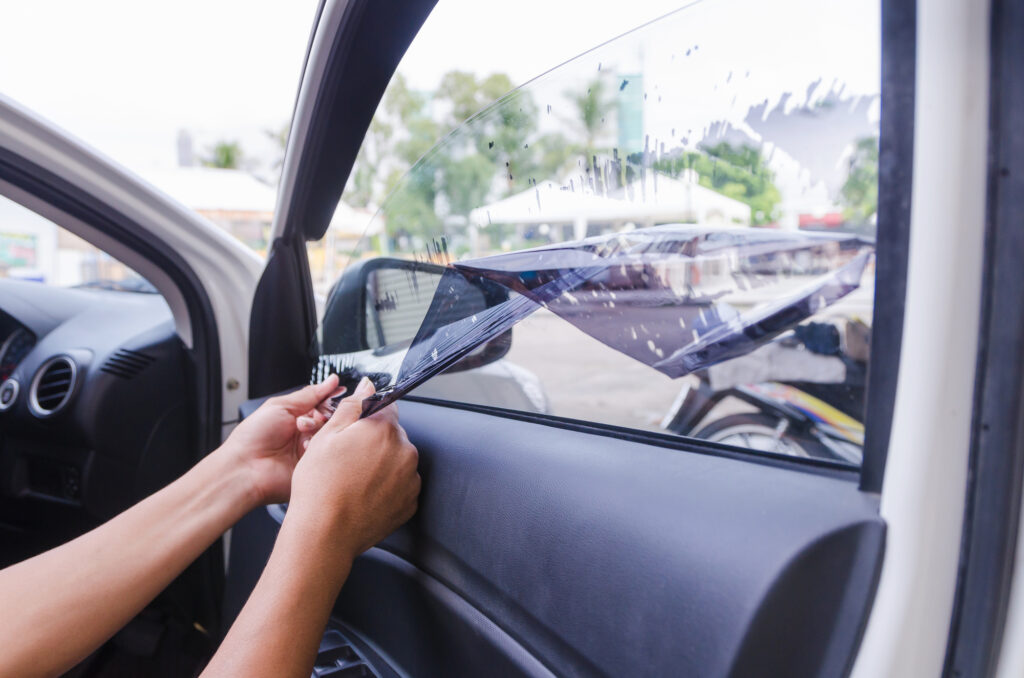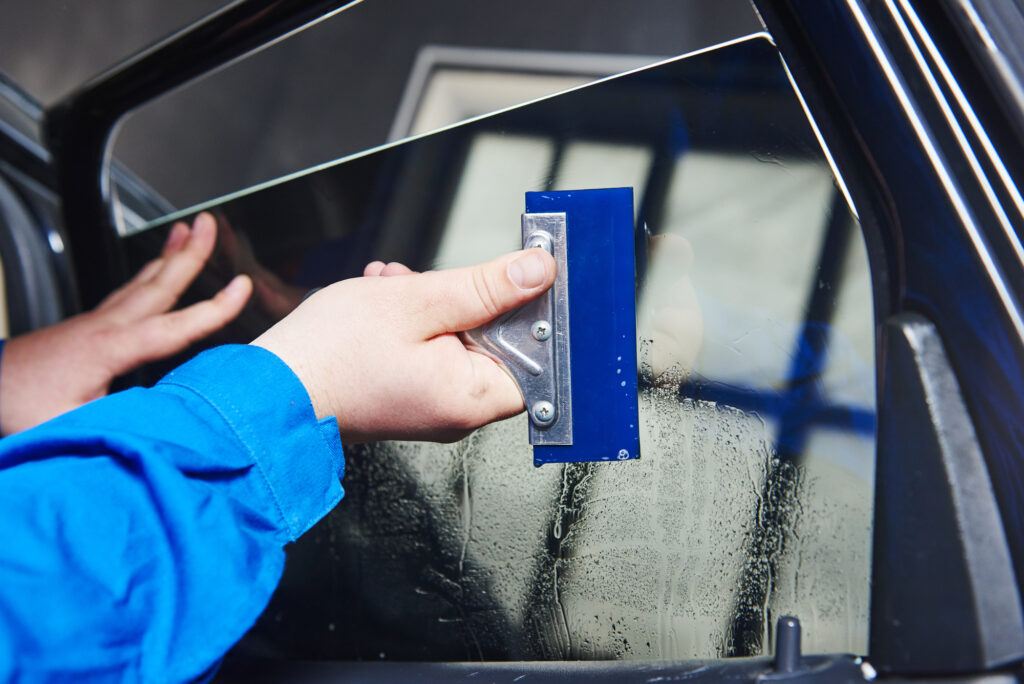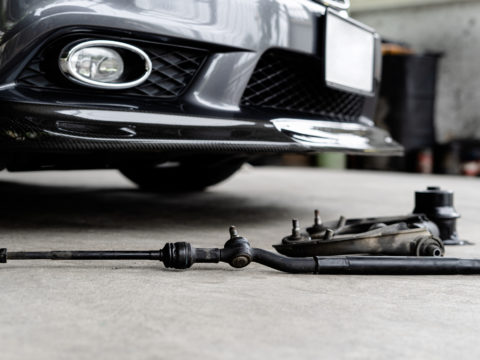Window tinting is a helpful and easy process that reduces the amount of sunlight streaming into your car. Window tinting helps block harmful UV rays, reduces sun glare, gives you privacy, and helps keep your car cool.

However, each state has different laws governing the type and amount of window tint allowed for different types of cars. Read on to find out Florida’s latest window tint laws for 2022.
Contents
1. Does Florida Have Window Tint Laws?
Yes, Florida first enacted the state’s window tint laws in 1991. The southern state was among the early adopters of window tint laws, the twelfth state to do so at the time.
Florida’s window tint laws differ for passenger, multi-purpose, and commercial vehicles, so it’s best to ensure your specific vehicle meets the state’s standard.
2. What Does the Car Window Tint Law Say in Florida?
Window tinting is legal in Florida, but there are restrictions on the levels and forms of tint. Colored window tint of any kind is illegal in Florida.
It is important to note that any vehicles with window tinting must have dual-side mirrors equipped at all times.
Window tint legal levels vary by vehicle type, and tint is measured as a percentage of Visible Light Transmission or VLT.
VLT is the amount of light that can pass through the tint and into the car, so a high VLT percentage is a relatively bright window tint, and a low VLT percentage is a darker window tint.
a) Personal Car Tint Laws in Florida
For personal cars in Florida, the window tint laws are slightly different for passenger and multi-purpose vehicles.
A passenger vehicle has a capacity of two to six passengers, and anything above seven (but lower than fifteen) is a multi-purpose vehicle.
Minivans, vans, SUVs, and large cab trucks are all examples of multi-purpose vehicles.
The window tint guidelines for passenger vehicles are:
- Front passenger side windows must allow a minimum of 28% of light in
- Rear passenger side windows must allow a minimum of 15% of light in
- The front windshield may be tinted above the vehicle’s AS-1 line
- The rear windshield must allow a minimum of 15% of light in
The window tint guidelines for multi-purpose vehicles are:
- The front passenger side windows must allow a minimum of 28% of light
- The front windshield may only be tinted above the AS-1 line.
- The rear windshield must allow 6% or more light in
- Rear passenger side windows must have 6% or more light coming in
b) Commercial Car Tint Laws in Florida
Commercial cars are any vehicle weighing more than 10,000 pounds, capable of transporting more than 15 passengers, and have a primary function of profit for the owner.
Commercial cars have strict window tint laws in Florida, no front or rear windshield tint is allowed, and a maximum of 70% VLT is allowed on all passenger and driver windows.

c) Can You Tint Your Windshield in Florida?
Yes, tinting your windshield is legal in Florida. For passenger vehicles, only non-reflective tint above your vehicle’s AS-1 line.
The AS-1 line differs by make and model, but it is a portion at the top of your windshield that allows for tinting in most states (including Florida).
The AS-1 line is typically marked by a harsh line, with more transparent glass below the line and slightly darker glass above the line on the windshield. In Florida, the windshield can be tinted above the AS-1 line.
For multi-purpose vehicles, the windshield can have a non-reflective tint on the top four inches from the edge. This is typically above the vehicle AS-1 line, similar to the guidelines for passenger vehicles.
d) What Percentage of Window Tint Is Legal in Florida?
The percentage of window tint allowed in Florida depends on the type of vehicle you’re driving. For example,
i. Lowest legal car window tint in Florida
Florida’s lowest (darkest) legal car window tint is a 6% VLT, but it is only allowed for a multi-purpose vehicle’s backside and rear windows.
The lowest legal car window tint for passenger vehicles is 28% VLT, which is allowed on a passenger vehicle’s front side windows, rear side windows, and rear windshield.
Exceptions are made in the case of medical need, so with an approved exemption, you may have a window tint on all windows, including the windshield and rear windshield, that is darker than the approved legal tint.
Window tints for medical issues generally stay between 20% and 32% VLT. The lower tint is approved because some people suffer from conditions that negatively interact with sunlight and UV rays.
In Florida, the medical conditions that qualify for window tint exemption are Lupus, Albinism, Dermatomyositis, Total or Facial Vitiligo, Xeroderma Pigmentosum, or another autoimmune disease or medical condition that a qualified doctor believes requires limited exposure to sunlight.
ii. Highest legal car window tint in Florida
The highest (brightest) legal car window tint in Florida is either no tint or a 70% VLT, the highest percentage of light tint that most professionals and DIY kits make.
You can rarely find window tints in the 80% or 90% range because the main benefits of window tinting (UV blockage and privacy) aren’t conducive to an 80% or 90% tint.
e) Is Ceramic Tint Legal in Florida?
Yes, ceramic window tint is legal in Florida as long as it conforms to the general guidelines for all window tinting. Ceramic window tint is one of the six primary types of window tint available on the market. The other five types are dyed window tint, metalized window tint, metal/dyed hybrid window tint, crystalline window tint, and carbon window tint.
3. So, Can You Be Pulled Over for Window Tint in Florida?
Yes, you can be pulled over in Florida if an officer suspects your window tint is darker than the legal limit. You may also be pulled over if you have a colored tint on your windows because colored window tint is illegal for all vehicles in Florida.
Most officers have a portable light meter in their vehicles. The portable light meter determines the VLT percentage of your window or windshields. If the officer tests your tint and finds it is darker than the legal minimum, they may let you off with a warning to fix it ASAP, or they may write you a ticket accompanied by a fine.
4. Legal Auto Window Tint Services in Florida
The best way to ensure you keep your window tint in Florida within the legal limits is to use a legitimate, legal auto window tint service.
f) Tinterz
Tinterz has locations in Orlando and Tampa and comes highly recommended by customers.
g) World of Auto Tinting
World of Auto Tinting in Miami boasts window tints for several organizations, including the nearby fire department.
h) Diwal Auto Pros
Diwal Auto Pros, based in Jacksonville, offers window tinting, detailing, and paint correction.














